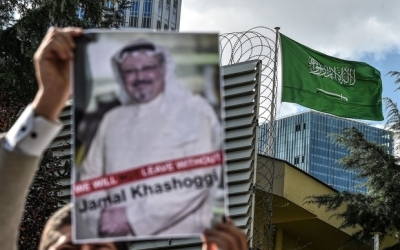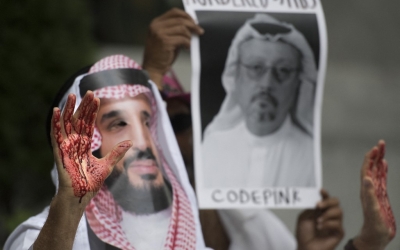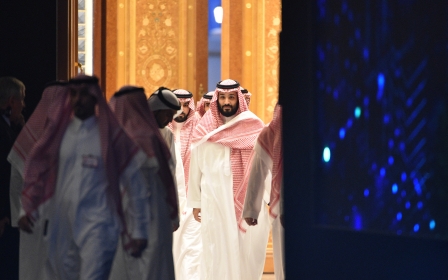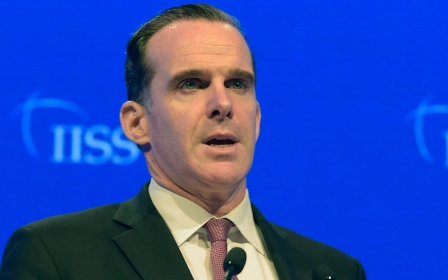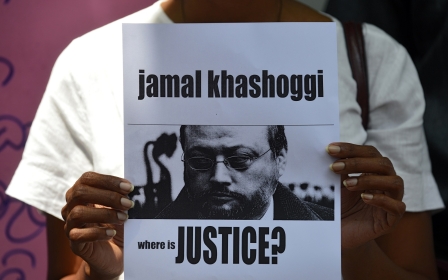World Press Freedom Day: Activists pay tribute to Jamal Khashoggi
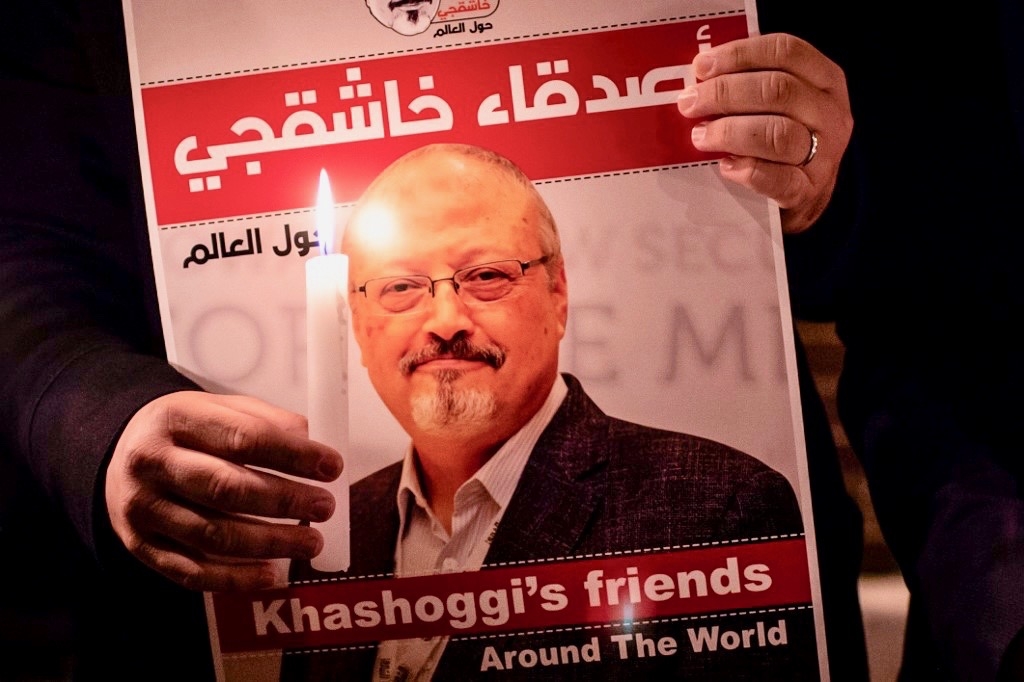
Rights advocates have paid tribute to Jamal Khashoggi on World Press Freedom Day, renewing calls for accountability and justice for the slain Saudi journalist.
World Press Freedom Day, marked on 3 May, comes two months after the US administration released a report accusing Saudi Crown Prince Mohammed bin Salman of ordering Khashoggi's assassination.
"Today, we dedicate #WorldPressFreedomDay to the journalists who have spoken truth to power in Saudi Arabia," Freedom First, a rights group, said on Twitter.
"To those who've been tortured, imprisoned, kidnapped, & killed. To Jamal Khashoggi, a [Washington Post] columnist that was brutally murdered under MBS' oversight."
Democracy for Arab World Now (DAWN), an advocacy group envisioned by Khashoggi that was formally established last year, also invoked the slain journalist to honour the occasion.
New MEE newsletter: Jerusalem Dispatch
Sign up to get the latest insights and analysis on Israel-Palestine, alongside Turkey Unpacked and other MEE newsletters
"Today, on #WorldPressFreedomDay, we remember Jamal Khashoggi, DAWN’s founder & journalist who was murdered for his powerful ideas & refusal to remain silent," the group said in a statement shared on social media.
"We continue his work while giving voice to the thousands of political exiles who yearn for freedom in their home countries."
DAWN highlighted a civil lawsuit filed alongside Khashoggi's fiancee, Hatice Cengiz, in a US court last year, accusing bin Salman of the assassination.
Khashoggi, a former Saudi government insider, became a democracy advocate and an influential critic of the crown prince before his death in October 2018.
Saudi government agents killed and dismembered him at the kingdom's consulate in Istanbul.
Saudi officials insisted for 17 days that the journalist had left the building alive before eventually acknowledging that he was killed. Riyadh, however, still maintains the assassination was an unauthorised operation that took place without the approval of top leaders.
Khashoggi was a US resident who wrote for the Washington Post and Middle East Eye.
In his two final years in office, former US President Donald Trump moved to shield Saudi leaders from the backlash in Washington over the murder, often citing Riyadh's geopolitical role in countering Iran and Saudi arms deals with US weapons manufacturers.
Biden's approach
During his campaign, President Joe Biden vowed to pursue accountability for the killing, describing Saudi Arabia as a "pariah" state.
But after releasing the US intelligence community's assessment that the crown prince, known as MBS, approved the killing, the new administration has refused to impose sanctions on him, arguing that such a move would cause a "rupture" in relations with Riyadh.
In a statement marking World Press Freedom Day this year, the US State Department cited the "Khashoggi Ban", a measure announced in February that enables Washington to impose visa restrictions on foreign officials engaged in the harassment of dissidents abroad.
"Under the Universal Declaration of Human Rights, freedom of expression includes the right of all individuals 'to seek, receive and impart information and ideas through any media and regardless of frontiers.' But the outlook for the rights of journalists today is harrowing," said US Secretary of State Antony Blinken.
"That's one reason we announced, in response to the brutal murder of Jamal Khashoggi, the 'Khashoggi Ban' - to help deter threatening behaviour against the media."
Regan Ralph, CEO of the Fund for Global Human Rights, an advocacy organisation that assists human rights activists, called on the Biden administration on Monday to make protecting journalists such as Khashoggi a priority.
"Civil society activists are vulnerable wherever they live and travel. Khashoggi’s murder shows the lengths to which an unchecked authoritarian will go to silence critics," Ralph wrote in a column for Open Democracy.
"This is what happens when heavyweight governments like the United States abdicate their moral leadership - frontline advocates everywhere in the world pay the price. It is unfathomably cruel to valorize the bravery of human rights advocates on the one hand and refuse to hold their murderers accountable on the other."
Middle East Eye delivers independent and unrivalled coverage and analysis of the Middle East, North Africa and beyond. To learn more about republishing this content and the associated fees, please fill out this form. More about MEE can be found here.


